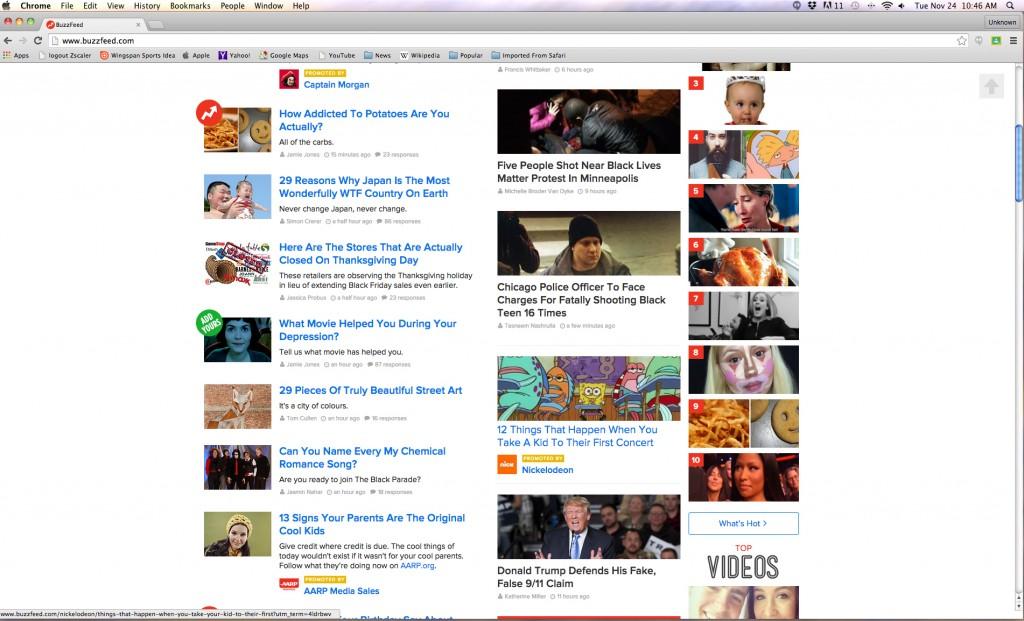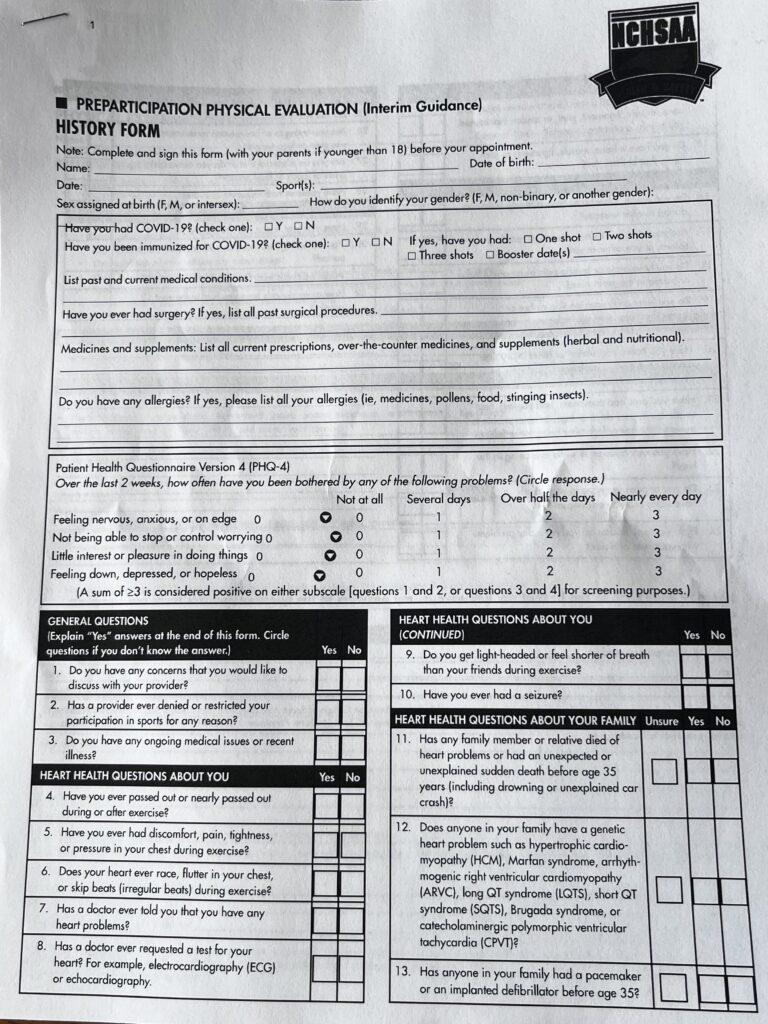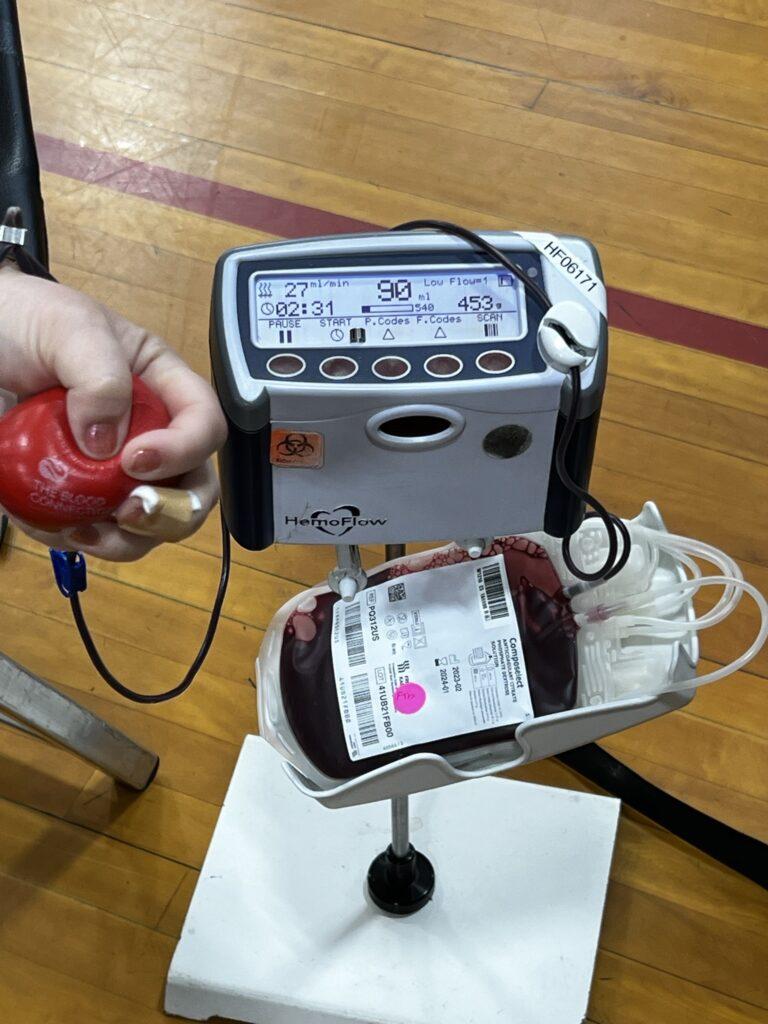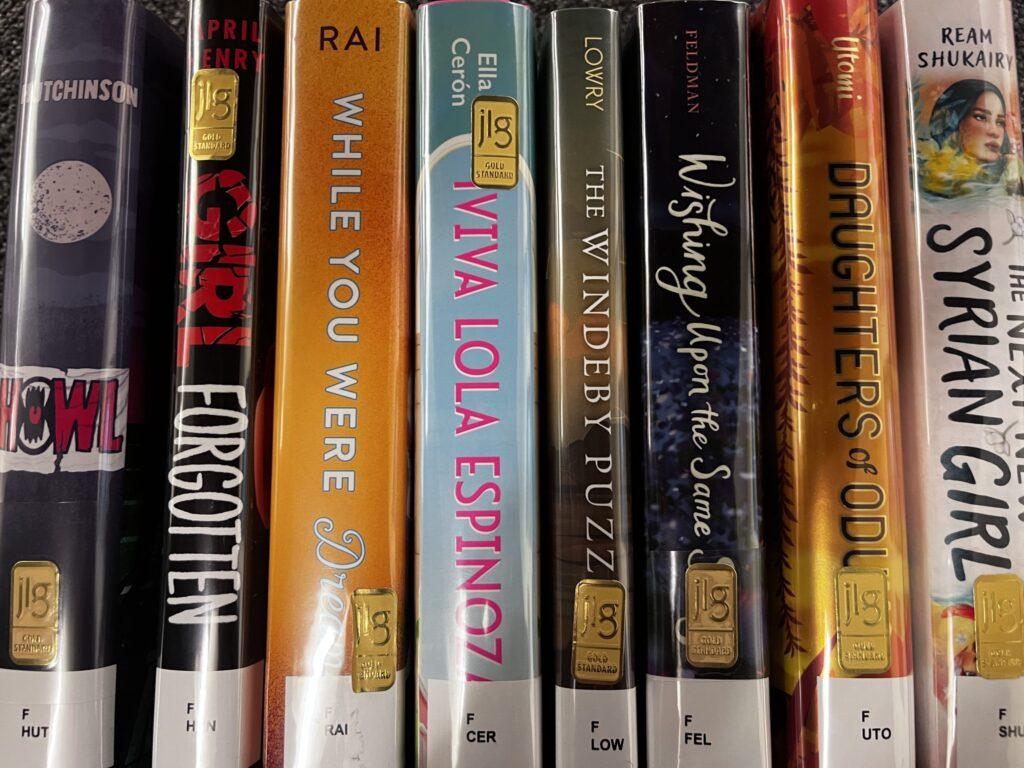The news matters.
The attacks in Paris that killed more than 130 people matter. The hostage crisis in Mali matters. The rampant racism throughout our country matters. The virus of political correctness infecting our college campuses matters. The mortal danger of climate change matters.
But while all these issues and many more plague our community, country and world, some of the major organizations claiming to report the news are doing a piss-poor job.
I’m talking about the Huffington Post. I’m talking about Fox News. I’m talking about CNN. But mainly I’m talking about Buzzfeed.
If you were to ask high school students whether they go to Buzzfeed, they would overwhelmingly answer, “Yes.” If you were to ask students whether they read the Washington Post or the New York Times the overwhelming answer would be, “No.” High school students today are getting their news from places like Buzzfeed, so we would hope they are being informed about the issues afflicting our world.
Buzzfeed claims to be a journalistic organization, so in theory they should fulfill this ideal. In fact, on the very top of their homepage their subhead says. “News Buzz Life.” To some extent, they do report the news. But when I scroll through their homepage, Twitter feed and Instagram overwhelmingly what I see is “Adele’s On-Fleek Eyebrows,” and “J Lo Just Murdered the AMA Stage with an Insane Dance Melody.”
While real people are being murdered by racist bigots, radical islamists and Russian-backed fighters, Buzzfeed insists on writing garbage about J Lo “murdering the stage.”
Shouldn’t we ask a little more of the organizations claiming to give us news? Shouldn’t we ask them to inform us of what really matters — stories of oppression, poverty, affliction and marginalization? Shouldn’t we expect our once-revered Fourth Estate to give us the stories to inspire the change we wish to see in the world?
In this new digital age of journalism, we have all sorts of new storytelling tools at our disposal: Twitter, Instagram, Snapchat, Vine YouTube and many others. With these new tools, we shouldn’t throw away journalistic ethics and good reporting for a more clicks and likes. Call me quixotic, but I believe that journalists can inform the public of what is important in new ways that will attract people young and old. Journalistic organizations shouldn’t stoop so low as to pander to the banal instincts of the lowest common denominator.
We should decry the poser journalists and lift up the true storytellers. Pandering to the Buzzfeed crowd will only murder the news and resurrect it as mindless entertainment.
By Ari Sen







